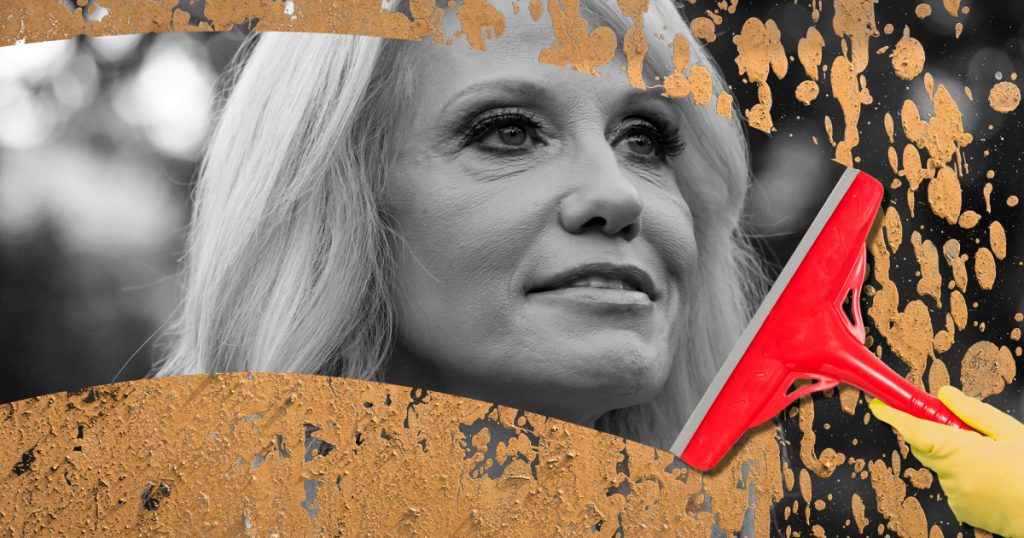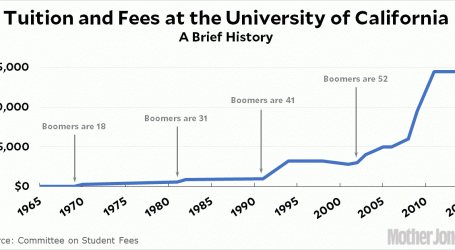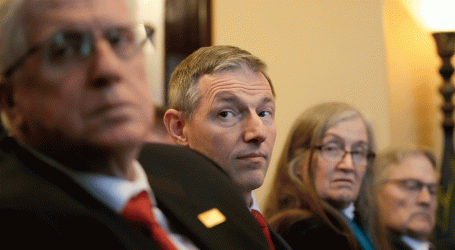The Media Will Help Rehabilitate Trump’s Loyalists
Let our journalists help you make sense of the noise: Subscribe to the Mother Jones Daily newsletter and get a recap of news that matters.I was sitting in the corner of my living room, which is now my pandemic workstation, eating leftovers about a month ago when my phone buzzed. It was a notification that a women’s news site invited a Trump administration bigwig, Kellyanne Conway, to join an event on women and the election.
Now that President-elect Joe Biden is headed to the Oval Office, Trump’s inner circle of advisers and appointees are boxing up their White House office suites and plotting their post-Trump careers. They will be penning political memoirs (Conway, who coined the phrase “alternative facts,” has reportedly inked a multimillion-dollar deal), scoring consultant gigs, and shortlisted for cozy posts in academia.
These appearances are a powerful reminder that, while Donald J. Trump’s quest to win the 2020 election is dead, another equally alarming campaign is underway. And many well-meaning media outlets will be complicit in presenting his team’s full-on attack on democracy as merely the Republican “side” in a bipartisan debate.
I’m not used to writing media criticism. I was a reporter for 15 years, but now that I’m chief operating officer at Mother Jones, part of my job is to think about the broader media, political, and economic systems we operate in and how our work can have the biggest impact. So let me explain.
It was hard to miss former national security adviser John Bolton’s media blitz to sell his new book, earlier this summer, after he made headlines for refusing to testify before congressional investigators during Trump’s impeachment hearings (which my colleague Dan Friedman wrote about in “Say It Under Oath, Asshole”). Other Trump alums made the rounds at media festivals and live events, albeit with mixed results. Former Homeland Security Secretary Kirstjen Nielsen was slated to be featured at the Atlantic Festival last year but was forced to drop out amid public backlash. In 2018, Steve Bannon got an invitation to headline the New Yorker Festival (though the appearance was later canceled). Earlier this month, it was longtime Trump adviser Kellyanne Conway and former Obama adviser Valerie Jarrett talking about women voters and the presidential election.
For the record, I support all of these media organizations. (Also for the record, I used to work for Condé Nast, the New Yorker’s parent company.) They do great, important work and deserve your subscription. No one person or publication invented this practice. And there is a reasonable argument for it: Allowing journalists to engage with officials with different views in a high-profile forum gives reporters the opportunity to ask tough questions without their source going off the record.
Unfortunately, it’s inevitable that soon-to-be-former Trump officials will use these invitations from the media as opportunities to soften and normalize their role in overt bigotry, the imprisonment of migrant children, and deadly COVID indifference that has defined the Trump administration.
When 45 took office four years ago, many national media outlets were slow to shake off the deeply entrenched deference to the presidency and reflexive “both sides” false equivalency, even if that meant giving a national audience to empathetic words for white supremacists and disinformation aimed to undermine democratic norms and even, more recently, clear-cut election results. (Remember when the New York Times published the headline “Trump Urges Unity vs. Racism” after the El Paso and Dayton shootings?) It wasn’t until the tail end of Trump’s presidency that major broadcast outlets became more aggressive about cutting away from Trump’s fact-free press conferences and rallies and pushing back when pundits lied in interviews.
There will be a strong urge among some of the most powerful players in media, now that Trump’s made-for-TV presidency is ending, to go back to the knee-jerk version of “both sides” journalism. (Twitter has been frustratingly inconsistent when it tries to limit how Trump spreads lies and disinformation from his account.)
I know that urge well because years ago, I was a young Black queer journalist who worked in many local newsrooms. I knew I had to seek out “the other side” for almost every topic, even if that meant I might be giving a platform to people who advocated in favor of racist policies or who openly questioned the humanity of the LGBTQ community. I am not advocating for one-sided stories here. What we need is more nuanced storytelling that doesn’t give every viewpoint the same weight and legitimacy.
We now know this false equivalency, which has been part of mainstream journalism for decades, is rooted in white privilege. “Since American journalism’s pivot many decades ago from an openly partisan press to a model of professed objectivity, the mainstream has allowed what it considers objective truth to be decided almost exclusively by white reporters and their mostly white bosses,” wrote Pulitzer Prize–winning journalist Wesley Lowery. Meanwhile, for many years the lived experience of journalists who belong to marginalized groups was not seen as expertise. It meant that they were falsely assumed to be “too close to the story,” writes Lewis Raven Wallace, co-founder of the Southern journalism collective Press On, in his book, The View From Somewhere.
That’s why I’m thrilled to help lead Mother Jones at a moment like this, when our newsroom can help shape a better way forward. Our team of journalists knows that this simplistic “both sides” reflex gives oxygen and legitimacy to bunk science, homophobia, white supremacy, and xenophobia. (And our CEO Monika Bauerlein wrote this terrific column about the dangers of false equivalency that is worth your time.) Instead, our journalists talk to experts—seeking out different viewpoints, but not uncritically airing lies or hate—pore over documents, and share their hard-earned expertise with you. They scrutinize political operators and follow the money, whether it’s examining Joe Biden’s cozy relationship with the banking industry or Conway’s support of Trump’s racist tweets and her blatant violation of the Hatch Act.
And when I wrote to you over the summer to introduce myself and ask the Mother Jones community what draws you to our work, you said that’s what you want:
I trust MJ to present fact-checked information behind every article, and provide context and background that help me properly frame events in contexts that I feel are accurate.
Your contributors do not take off the sharp edges of reality to make their analyses more palatable to some sectors of the economy.
Intriguing and well written. Timely and informative. These are not just buzz words. Your style of journalism is refreshing in an era of regurgitated party line ‘news.’
I just want to say congratulations! I’m excited to see a person of color leading a news organization, especially as I believe that white legacy media fails to cover nuanced issues of race in all their complexity. From the presidential primary to police brutality, the voices and views of BIPOC are often missing.
That nuanced approach is going to matter as we track the social justice movements that are starting a new, post-Trump chapter. That includes election victories for progressive prosecutors who want to reform the criminal justice system as well as the scientists and epidemiologists who want to help the United States prepare for the next pandemic (experts like Seema Yasmin, who will join us for an online event in January to talk about COVID misinformation).
Mother Jones can do things differently because we don’t rely on advertisers or billionaire investors. Instead, support from our community of readers makes our journalism possible, and that gives us the independence to call it like we see it. This is a big month for our fundraising, and I’d be grateful if you helped us with a donation to support our work to help us reach our $350,000 goal if you can.
As our country begins this new political chapter, it is more important than ever that independent voices speak truth to power—and tell stories that are more complex than two falsely equivalent sides.





